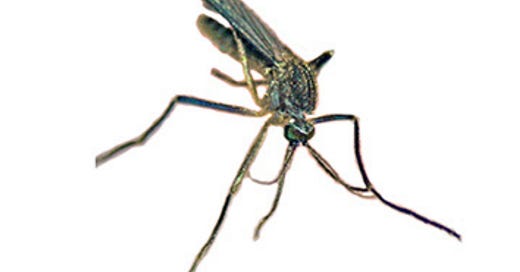Though rare (only a few cases are reported in the United States each year with most cases occurring in eastern or Gulf Coast states), Eastern Equine Encephalitis (EEE) is a serious and a potentially fatal disease that can affect people of all ages. EEE is generally spread to humans through the bite of an infected mosquito.
In 2024 to date, three human cases have been reported in the United States-New Jersey, Vermont and most recently, Massachusetts.
In New Jersey, health officials in Atlantic County confirmed the first human EEE case earlier this month.
This is the first human case of EEE in the state since 2019. The patient is under medical care and is recovering.
In Vermont, state health officials announced last week the first human case of EEE in Vermont since 2012. The case, a male in his 40s from Chittenden County, was hospitalized on July 16, but left the hospital a week later.
Florida Eastern Equine Encephalitis cases in horses this year top cases in all of 2023
The case was detected through laboratory testing and reporting by the health care provider. The Health Department coordinated specimen submission to the Centers for Disease Control and Prevention and received confirmatory results on Aug. 8.
On Friday, the Massachusetts Department of Public Health (DPH) announced the first human case of EEE in the state this year. The person is a male in his 80s who was exposed in Worcester County.
Subscribe to Outbreak News TV on YouTube
This is the first case of human EEE in Massachusetts since 2020.
EEE is spread by the bite of a mosquito infected with EEE virus (EEEV). EEEV can also infect a wide range of animals including mammals, birds, reptiles, and amphibians. The spread of EEEV to mammals (including humans and horses) occurs through the bite of infected mosquitoes that feed on both birds and mammals.
Most people infected with EEE virus will have no or mild symptoms, such as fever, chills, fatigue, and joint and body aches. While rare, EEE can result in severe disease, including encephalitis, an inflammation of the brain. EEE is fatal in about one-third of people who develop severe disease. Many who recover from severe EEE disease are left with disabilities.
There are no vaccines to prevent or medicines to treat eastern equine encephalitis.





